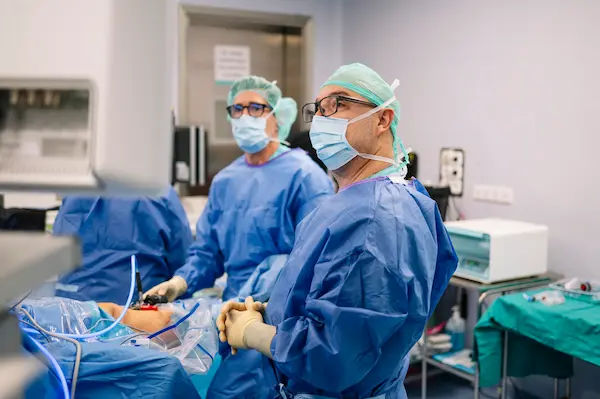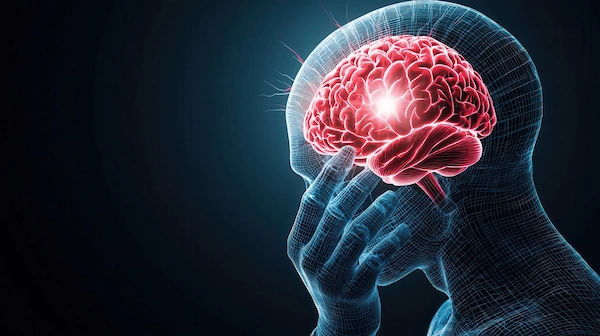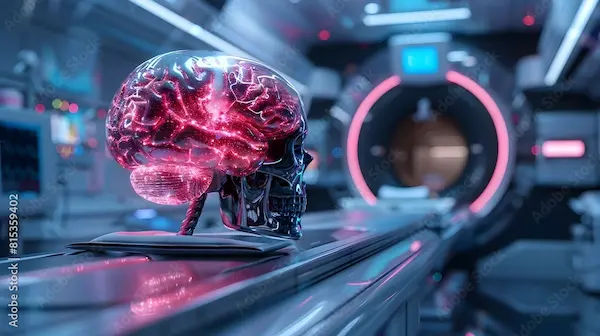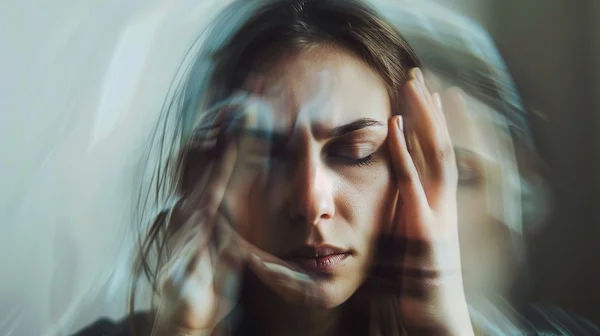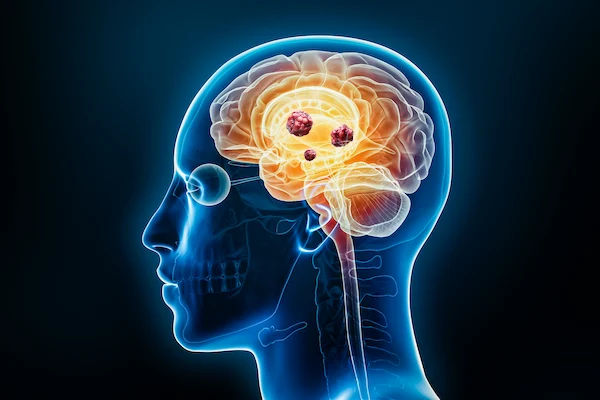Understanding Brain Tumours in Children: A Parent's Guide
Learn about childhood brain tumours, their symptoms, types, treatment options, and long-term care in this clear and compassionate parent’s guide.

Written by Dr. M L Ezhilarasan
Reviewed by Dr. Shaik Abdul Kalam MD (Physician)
Last updated on 13th Jan, 2026
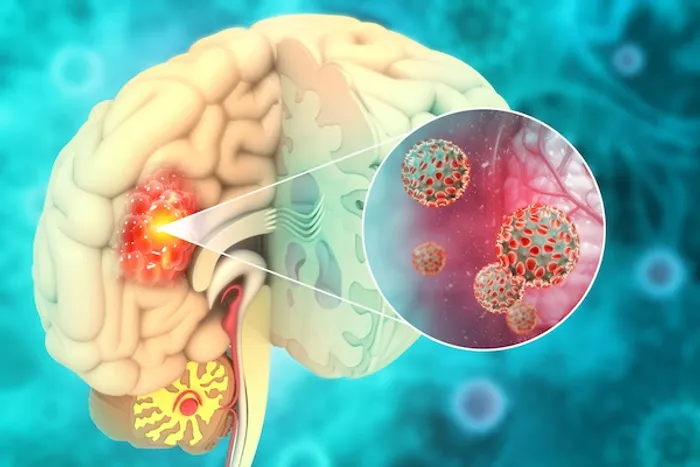
Hearing the words "brain tumour" in relation to your child is every parent's worst fear. It’s a diagnosis that brings a whirlwind of emotions, questions, and uncertainty. However, in the face of this challenge, knowledge is your most powerful ally. Modern medicine has made significant strides in the diagnosis, treatment, and management of brain tumours in children, leading to higher survival rates and better quality of life than ever before. This guide is designed to walk you through the essentials—from recognising early warning signs and understanding the different types of paediatric brain cancer to navigating treatment options and finding support. Our goal is to empower you with clear, compassionate information to help you advocate for your child's health every step of the way.
What is a Paediatric Brain Tumour?
This section introduces what brain tumours mean in children and why they are different from other conditions.
A paediatric brain tumour is a mass or growth of abnormal cells in a child's brain or central spinal cord. While every cell in our body grows, works, and dies in a controlled way, tumour cells multiply uncontrollably, creating a mass that can interfere with vital functions. It's crucial to understand that not all tumours are cancerous (malignant); many are benign. However, even a non-cancerous mass can be serious because of its location in the confined space of the skull, where it can press on sensitive brain tissue and cause significant health issues.
How Are They Different from Adult Brain Tumours?
Brain tumours in children are fundamentally different from those in adults. They often occur in different locations, develop from different cell types, and behave differently. For instance, adults more commonly develop tumours in the upper parts of the brain (the cerebral hemispheres), while paediatric brain tumours are more frequent in the lower brain areas like the cerebellum and brainstem. Furthermore, a child's developing brain and body mean they respond to treatments like radiation differently, and doctors must carefully consider long-term side effects on development, learning, and growth.
Consult an Paediatric Neurologist for the best advice
Recognising the Signs: Symptoms of Brain Tumours in Children
It is important for parents to be aware of early warning signs that might indicate a brain tumour.
The symptoms of a brain tumour in a child can be vague and easily mistaken for common childhood illnesses. They occur when the tumour creates pressure inside the skull (increased intracranial pressure) or when it presses on specific areas of the brain, disrupting function.
Common General Symptoms
- Frequent Headaches: Often worse in the morning or that wake the child from sleep.
- Nausea and Vomiting: Especially unexplained vomiting that occurs in the morning.
- Vision, Hearing, or Speech Problems: Such as blurred or double vision.
- Loss of Balance or Coordination: Clumsiness, difficulty walking.
- Seizures: Especially in a child with no previous history of them.
- Unusual Sleepiness or Change in Energy Level.
Symptoms Based on Tumour Location
- Cerebellum (controls balance): Difficulty with motor skills, walking, and coordination.
- Brainstem (controls vital functions): Problems with swallowing, facial weakness, double vision.
- Optic Pathway: Vision loss.
- Pituitary Gland: Growth and puberty abnormalities.
When to Seek Immediate Medical Help
If your child experiences a sudden, severe headache, a new seizure, or rapid neurological decline, seek emergency care. For persistent, worrying symptoms like headaches and vomiting that don't resolve, it's essential to consult a paediatrician. If symptoms persist beyond two weeks, consult a doctor online with Apollo24|7 for further evaluation and to discuss the need for a specialist referral.
Types of Brain Tumours in Children
There are many types of paediatric brain tumours, and understanding them helps guide treatment and care.
There are over 100 main types of paediatric brain tumours. Some of the most common include:
- Gliomas: This category includes tumours arising from glial cells. Examples are astrocytomas (which can be low-grade or high-grade) and brainstem gliomas (which are often high-grade and difficult to treat).
- Medulloblastomas: These are fast-growing, high-grade tumours located in the cerebellum. They are the most common malignant brain tumour in children but are often responsive to treatment.
- Ependymomas: These tumours develop in the ependymal cells lining the ventricles of the brain and the central canal of the spinal cord.
- Craniopharyngiomas: These are slow-growing, benign tumours near the pituitary gland that can cause vision and hormonal problems.
Treatment Options for Childhood Brain Tumours
Treatment for brain tumours in children varies and is personalised based on many factors.
Treatment is highly personalised and depends on the tumour type, location, size, the child’s age, and overall health. A multidisciplinary team of specialists will guide the plan.
- Surgery: The primary goal is to remove as much of the tumour as possible without damaging surrounding healthy brain tissue. Advances in technology, like intraoperative MRI and neuronavigation, have made surgery safer and more precise.
- Radiation Therapy: This uses high-energy beams to target and kill tumour cells. In children, doctors use extreme caution due to potential effects on the developing brain. Techniques like proton beam therapy can more precisely target the tumour, sparing healthy tissue.
- Chemotherapy: These are drugs designed to kill cancer cells. They are often used in combination with other treatments, especially for aggressive types of paediatric brain cancer like medulloblastoma.
- Targeted Therapy and Clinical Trials: These newer treatments focus on specific abnormalities within cancer cells. Enrolling in a clinical trial can sometimes provide access to cutting-edge therapies.
Life After Treatment: Survivorship and Long-Term Care
The journey continues after treatment, as many children need lifelong follow-up and specialised care.
Beating the tumour is the first victory, but the journey continues. Many survivors face "late effects" from their treatment, which can include learning disabilities, hormonal deficiencies, growth problems, or hearing loss. This makes lifelong, specialised follow-up care critical. Regular check-ups with oncology, endocrinology, and neuropsychology are essential to manage these long-term effects of paediatric brain tumour treatment and ensure the best possible quality of life.
Conclusion
A diagnosis of a brain tumour in a child is undoubtedly life-altering. It launches families into a world of complex medical terms and difficult decisions. Yet, it's a journey that thousands of families navigate each year, fuelled by hope, resilience, and the remarkable advances in modern medicine. Awareness of the symptoms empowers you to act early, which can significantly impact outcomes. Remember, you are not alone. An entire team of dedicated healthcare professionals is there to support you and your child. By staying informed, asking questions, and advocating for your child, you are providing them with the strongest foundation for fighting and thriving. If your child is undergoing treatment and requires frequent monitoring, Apollo24|7 offers convenient home collection for essential blood tests, reducing hospital visits and stress.
Consult an Paediatric Neurologist for the best advice
Consult an Paediatric Neurologist for the best advice

Dr Sharvari Kulkarni
Paediatrician
5 Years • MBBS, MD PEDIATRICS
Pune
Apollo Clinic, Viman Nagar, Pune

Dr. Rohit Vohra
Paediatric Pulmonologist
10 Years • MBBS, MD PEDIATRICS, FELLOWSHIP IN PEDIATRIC INTENSIVE CARE,FELLOWSHIP IN PULMONOLOGY
Delhi
Apollo Hospitals Indraprastha, Delhi
(75+ Patients)

Dr. Rashmi Devaraj
Neurologist
11 Years • MBBS, MD PEDIATRICS, DM NEUROLOGY
Bengaluru
Apollo Medical Center, Marathahalli, Bengaluru
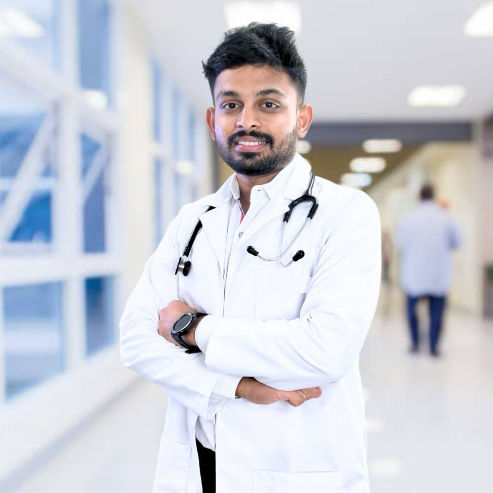
Dr Viveka Santhosh Reddy C
Paediatric Neurologist
6 Years • MBBS, MD Pediatrics, Post Doctoral Fellowship in Pediatric Neurology
Bengaluru
Apollo Hospitals Bannerghatta Road, Bengaluru
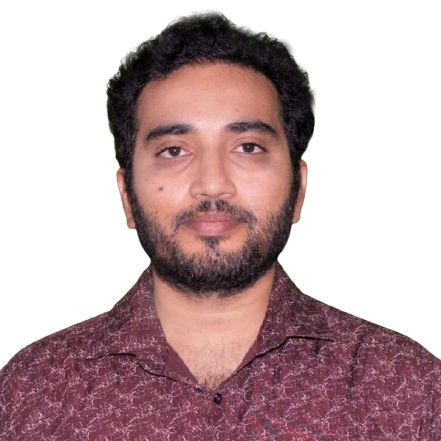
Dr Bharath Kumar S
Cardiologist
5 Years • MBBS MD DrNB ( Cardiology )
Bengaluru
PRESTIGE SHANTHINIKETAN - SOCIETY CLINIC, Bengaluru
Consult an Paediatric Neurologist for the best advice

Dr Sharvari Kulkarni
Paediatrician
5 Years • MBBS, MD PEDIATRICS
Pune
Apollo Clinic, Viman Nagar, Pune

Dr. Rohit Vohra
Paediatric Pulmonologist
10 Years • MBBS, MD PEDIATRICS, FELLOWSHIP IN PEDIATRIC INTENSIVE CARE,FELLOWSHIP IN PULMONOLOGY
Delhi
Apollo Hospitals Indraprastha, Delhi
(75+ Patients)

Dr. Rashmi Devaraj
Neurologist
11 Years • MBBS, MD PEDIATRICS, DM NEUROLOGY
Bengaluru
Apollo Medical Center, Marathahalli, Bengaluru

Dr Viveka Santhosh Reddy C
Paediatric Neurologist
6 Years • MBBS, MD Pediatrics, Post Doctoral Fellowship in Pediatric Neurology
Bengaluru
Apollo Hospitals Bannerghatta Road, Bengaluru

Dr Bharath Kumar S
Cardiologist
5 Years • MBBS MD DrNB ( Cardiology )
Bengaluru
PRESTIGE SHANTHINIKETAN - SOCIETY CLINIC, Bengaluru
More articles from Brain Tumor
Frequently Asked Questions
What are the earliest signs of a brain tumour in a child?
The earliest signs are often persistent headaches that are worse in the morning, unexplained nausea and vomiting (particularly in the morning), and a sudden change in balance, coordination, or vision. However, these can be subtle and develop gradually.
Are all brain tumours in children cancerous?
No, not all are cancerous. Many paediatric brain tumours are benign. However, because of their location in the confined skull, even a non-cancerous mass can cause serious health problems by pressing on critical brain structures.
What causes a brain tumour in a child?
In most cases, the exact cause is unknown. Most paediatric brain tumours are linked to random genetic mutations in otherwise healthy cells. A small percentage can be associated with inherited genetic syndromes like Neurofibromatosis or Li-Fraumeni syndrome.
What is the survival rate for childhood brain tumours?
Survival rates vary dramatically depending on the tumour type, location, and how early it is detected. For some low-grade gliomas, the 5-year survival rate is over 95%. For other, more aggressive types, the rate is lower. It's best to discuss specific prognosis with your oncologist.
How can I support my child during treatment?
Be open and honest in an age-appropriate way, maintain routines as much as possible, encourage play and normalcy, and seek support for yourself so you can be strong for them. Don't hesitate to lean on your medical team's child life specialists and social workers for guidance.
